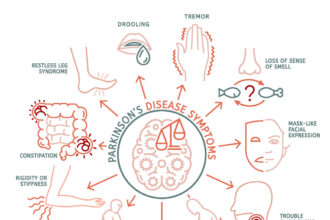Many breast cancer survivors experience cancer-related cognitive impairment following chemotherapy, with varying rates and severity. To explore potential treatments for this condition, researchers from Wake Forest University School of Medicine conducted a Phase III randomized, placebo-controlled trial focusing on donepezil, a medication commonly used to enhance cognition in Alzheimer’s patients.
The study, published in the Journal of Clinical Oncology, enrolled 276 breast cancer survivors from community oncology practices affiliated with the National Cancer Institute Community Oncology Research Program (NCORP). These participants had undergone at least four cycles of adjuvant chemotherapy and reported cognitive impairment and memory issues persisting from one to five years after completing chemotherapy. Recruitment took place between July 2017 and July 2021.
Participants were randomly assigned to receive either 5-10 mg of donepezil daily for 24 weeks or a placebo. Cognitive assessments were conducted before treatment initiation, at 12 weeks, and the end of the treatment period.
Lead author Stephen R. Rapp, Ph. D., a professor of psychiatry and behavioural medicine at Wake Forest University School of Medicine, revealed that the study did not find significant improvements in memory, other cognitive functions, or subjective functioning among those who received donepezil compared to those who received the placebo.
“While our findings do not support the use of donepezil for improving cancer-related cognitive impairment in breast cancer survivors post-chemotherapy, further research is essential,” commented Glenn Lesser, M.D., deputy director of the Atrium Health Wake Forest Baptist Comprehensive Cancer Center and senior author of the study. He emphasized the need for additional trials exploring different timing of medication administration, alternative medications or combinations thereof, and non-pharmacological interventions.
The Wake Forest NCORP Research Base at Atrium Health Wake Forest Baptist’s National Cancer Institute-designated Comprehensive Cancer Center played a pivotal role in this national effort. It is one of seven funded NCORP Research Program bases in the United States. This collaborative approach underscores the importance of community-based research in addressing the challenges faced by cancer survivors.
While donepezil did not demonstrate efficacy in improving cognitive function in breast cancer survivors with chemotherapy-related cognitive impairment in this trial, ongoing research efforts hold promise for identifying effective interventions to alleviate this challenging condition.
More information: Stephen R. Rapp et al, Phase III Randomized, Placebo-Controlled Clinical Trial of Donepezil for Treatment of Cognitive Impairment in Breast Cancer Survivors After Adjuvant Chemotherapy (WF-97116), Journal of Clinical Oncology. DOI: 10.1200/JCO.23.01100
Journal information: Journal of Clinical Oncology Provided by Atrium Health Wake Forest Baptist








